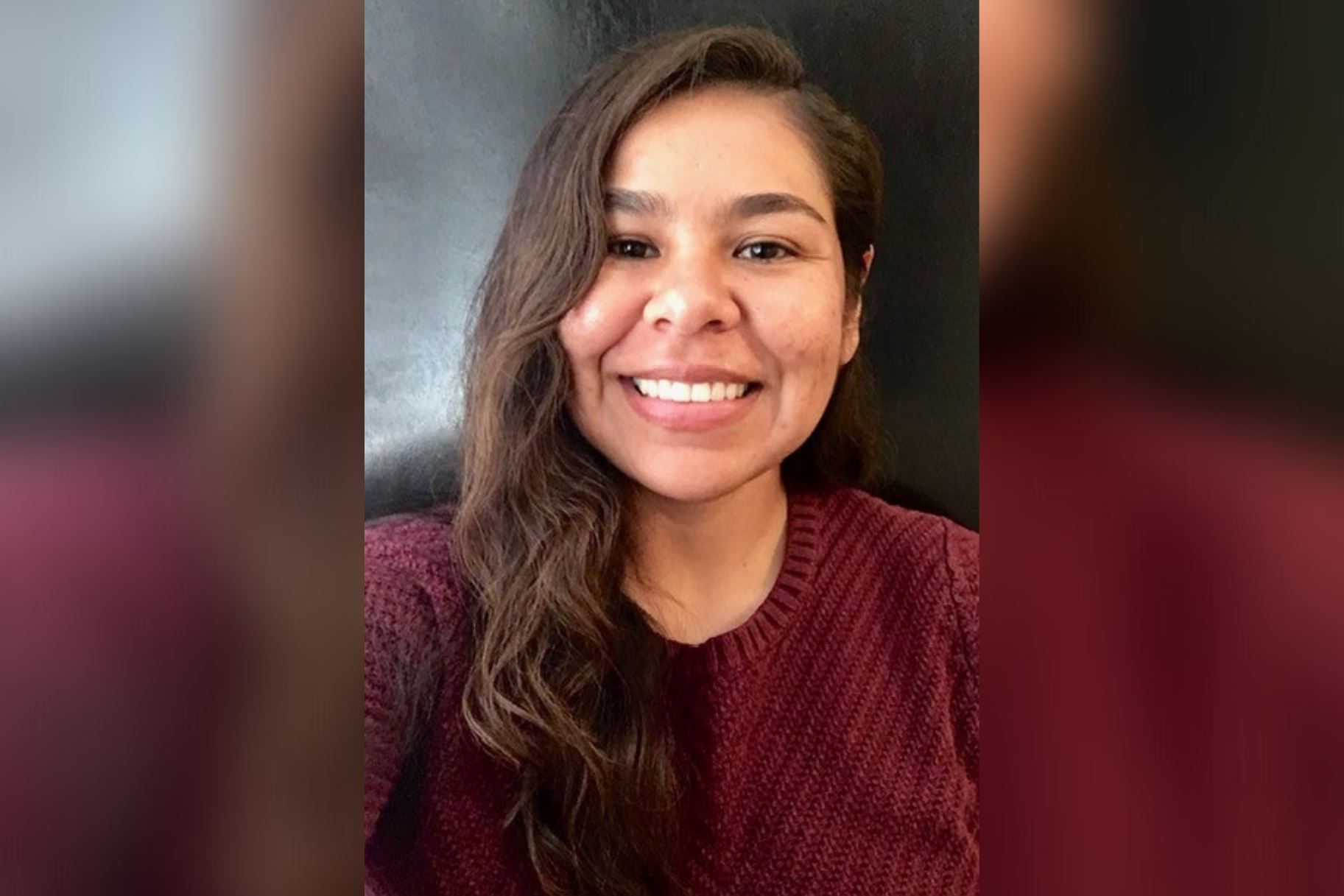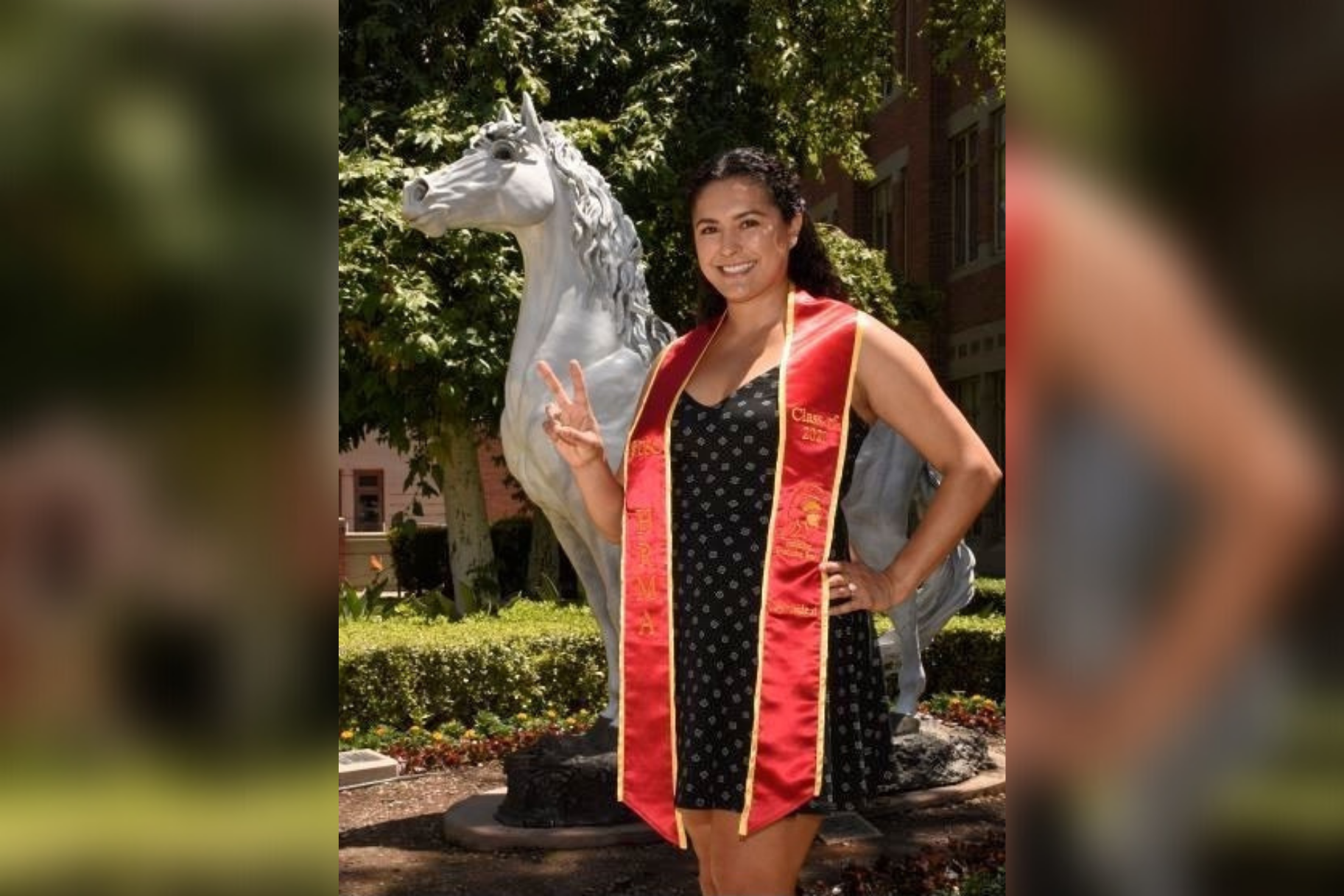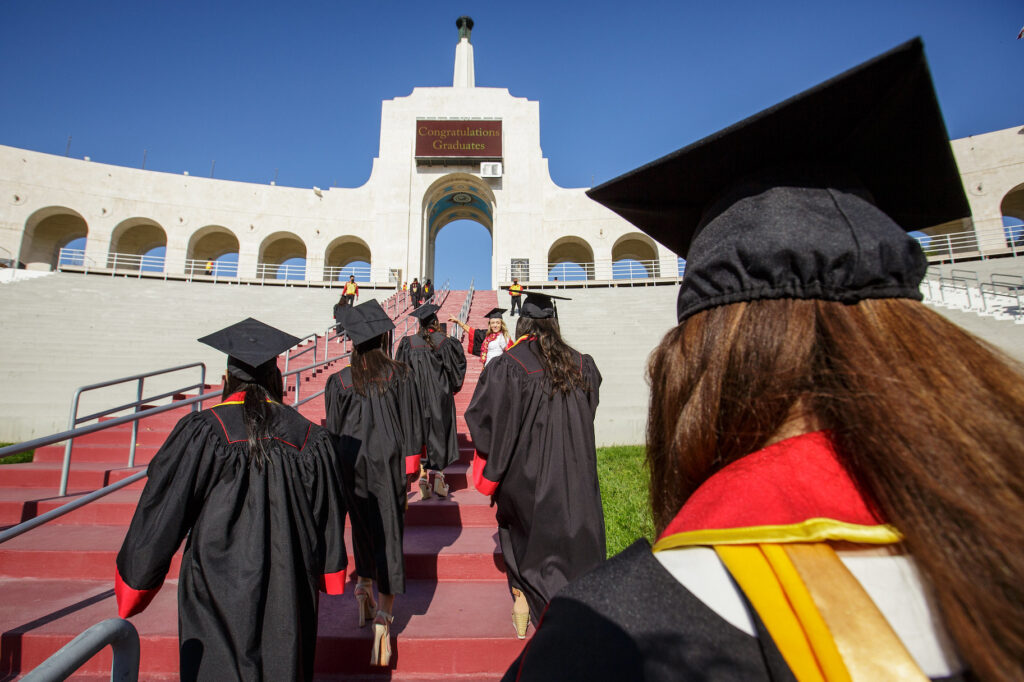When it comes to pursuing an online master’s degree, the benefits seem obvious: There is more flexibility, you have access to global perspectives, most classes are designed for working professionals and there is additional program variety.
Still, prospective students often worry that by joining a remote learning environment, they won’t have the same opportunity to immerse themselves in the wider university community. Many online graduate students, however, are proof that’s not the case — especially at USC.
To uncover how students can become more involved with their cohorts, we spoke with three current students and alumni who enrolled in online programs at USC and ultimately transformed the Trojan community at large.
“This was a great opportunity to meet people.”
When Amarilis Bolaños decided she was ready to pursue her master’s degree at USC, she wasn’t sure which program she wanted to apply to. Eventually, the COVID-19 pandemic helped her decide which path to embark on.
“I applied to the Master of Public Health program because during COVID, we were hearing all about public health. It was something that I felt passionate about, especially with the current events that were happening. I wanted to be a part of something that could help,” she told USC Online.
Another reason the MPH program appealed to Bolaños was that fact that it was online — she would be able to successfully juggle her work schedule and academic demands at the same time. While the convenience and flexibility were key for Bolaños, she admitted she missed the ease of meeting fellow students in-person.
To become more involved with USC, she decided to join the USC Master of Public Health Student Association, where she initially acted as secretary and is now the director of finance.
“I really wanted to do something besides school and classes that got me more personally involved, and the Public Health Association made sense with why I was at USC in the first place … I wanted to meet other people, and this was a great opportunity to do that,” she explained.

Since joining, Bolaños has even headed to campus a few times for in-person events to make additional connections. It’s been a relief, she noted, to network with her cohort and develop a stronger tie to the USC community.
“Definitely look out for the emails you get in the beginning about ways to get involved. It might be overwhelming, but look through them,” she advised. “Focus on one thing you might be passionate about and you can learn from. It’ll keep you invested if you’re truly passionate about it.”
“If you want that community, extend your outreach.”
For Nicole Garcia, USC’s excellent reputation for “developing leaders,” as well as its dynamic alumni network, drew her to the online Master of Science in Human Resource Management (MSHRM) program.
“I did the [MSHRM] online because I wanted to continue working … but it was great to be able to apply what I’m learning directly [to my career]. It’s a major pro of doing your master’s online: the real-time application … [The professors] also were able to give me immediate support, understanding and guidance,” Garcia explained.
As a human resources professional, Garcia enjoys connecting with people and making a positive impact on her peers. While attending USC, she saw her opportunity to combine both of those passions by co-founding the Human Resource Management Association (HRMA).
“It was a way to connect outside of the online courses and share with classmates our different life experiences or different experiences in the field,” she said.
The HRMA chapter was able to bring together students from diverse backgrounds — from HR directors at Nike to coordinators building small startup teams — to network, seek advice and play to each other’s strengths.
“Doing this through the HR chapter and coming together for things that we feel passionate about was helpful,” Garcia explained.

Today, the HRMA has helped students do exactly that: connect and share information and experiences. It certainly helped cement Garcia in the USC world.
“If you want that community, then it’s extending your outreach. It’s messaging your classmates — maybe it’s email, maybe it’s LinkedIn. Maybe when you’re in a class, it’s pinging someone on the side to connect over something they said … It’s just about putting in the effort to be available and do more outreach to your other classmates and the faculty as well,” Garcia concluded.
“To the degree that it’s possible, say yes to everything.”
A major reason people return to school is to gain more clarity on the next steps in their career. That was the case for Bradley Jacob, who chose to obtain his Master of Public Administration (MPA) online at USC.
“I previously worked in finance, but I wanted to pivot toward work that was more mission driven. I wasn’t sure what that would look like, whether it was working in an elected official’s office or at a state or federal agency or on the consulting side. I wanted to approach this pivot from a place of strong academic understanding and practiced experience to enter this new career with a strong foundation to build off of,” he said.
The MPA online program worked for Jacob on many different levels, but like Garcia and Bolaños, he was concerned he wouldn’t forge strong bonds with his classmates or find his place in the USC community.
Ultimately, it was Jacob’s commitment to saying “yes” to every arising opportunity that led him to become director of external affairs at USC Graduate Student Government, a role that transformed his relationship with the university.

Although Jacob initially accepted the position to build out his policy portfolio, he quickly became dedicated to promoting initiatives that benefited the USC graduate school population at the “local, state and federal level.”
“I looked at it as a unique and pretty awesome opportunity to understand the needs of our constituency and try to navigate the various networks at each level of government to advance some of the issues that we were working on. It was a great experience for me, and I really feel fortunate to be part of the Trojan Family and network,” he explained.
The role allowed Jacob to connect with a multitude of fellow Trojans — whom he described as “very conscientious, highly capable and really driven to improve the lives of the student population” — and make lasting impacts on the university.
For other online students who are unsure how they can become involved with school initiatives and groups, his advice was simple: “To the degree that it’s possible, say yes to everything.”
“There’s a great opportunity at USC to join many different types of clubs and student-run groups that provide opportunities to meet people, work on initiatives that you care about and have the cachet of the USC name both on campus and off campus,” he said. “So, say yes to everything. For me, that philosophy led to so much.”
Learn more about USC’s online graduate programs today.

